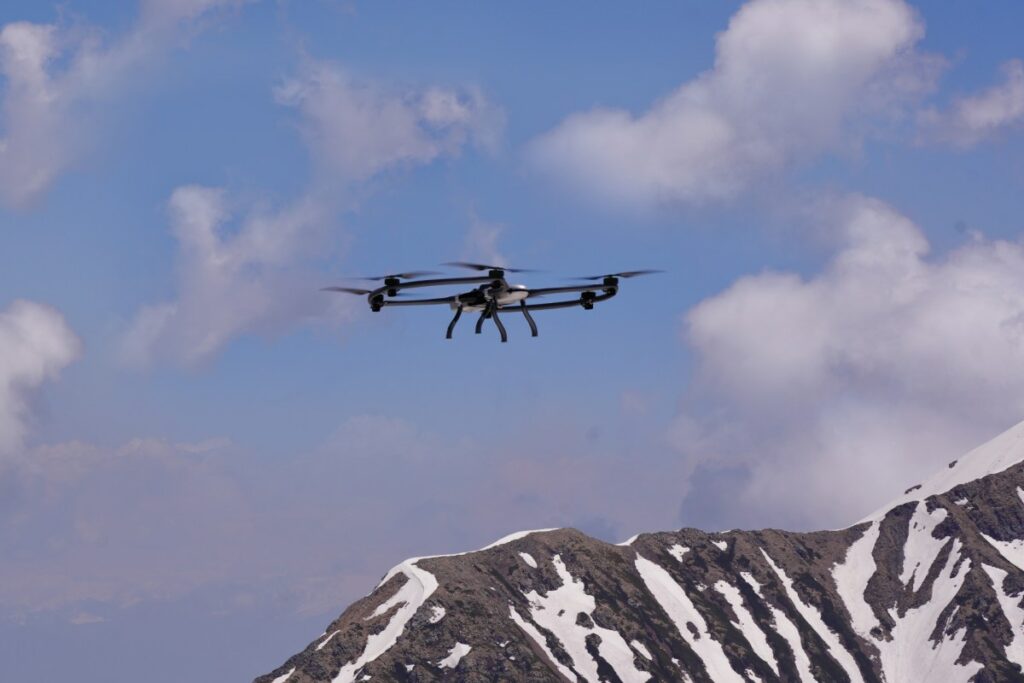Indian drone startup Raphe mPhibr has raised $100 million in an all-equity Series B round led by General Catalyst, as the startup aims to boost its R&D and local production capabilities amid growing demand for drones in battlefields and for border surveillance.
Drones are becoming increasingly ubiquitous in global military operations. In recent and ongoing conflicts, countries have turned to drones for rapid infiltration and high-impact strikes. The recent India-Pakistan war is a prime example, with both militaries deploying drones at scale despite having advanced fighter jets and missile systems. The conflict spurred New Delhi to triple its drone spending to $470 million over the next 12 to 14 months according to the Drone Federation of India, an association representing over 550 companies.
While China remains the dominant force in global drone manufacturing, Raphe mPhibr aims to strengthen India’s indigenous drone capabilities.
Co-founded by siblings Vikash Mishra (chairman) and Vivek Mishra (CEO) in 2017, the Noida-based startup currently offers nine different drones with payloads ranging from 4.4 pounds to 441 pounds, covering an average distance of between 12 to 124 miles. These drones include the mR10 operational drone swarm, the mR20 for high-altitude logistics resupply, the X8 compact platform for maritime patrol and situational awareness at sea, and the Bharat lightweight man-carried drone for quick surveillance in complex terrain.
The startup has more than 10 customers, all of which are Indian government agencies, including the Indian Army, Navy, and Air Force, as well as armed police forces such as the Border Security Force, Central Reserve Police Force, and the Indo-Tibetan Border Police.
The Mishra brothers conceptualized Raphe mPhibr in 2016 while Vikash was studying at the Massachusetts Institute of Technology and Vivek was at the Georgia Institute of Technology. For the initial three to four years, the co-founders focused on understanding the operational needs of the defense forces, along with other requirements, such as environmental and terrain considerations. Then, they began building multicopters to meet the needs of the Indian troops, gradually expanding to fixed-wing and vertical takeoff and landing (VTOL) aircraft.
“In the process, we understood that since the need is new and the area is niche, we focused on both research and manufacturing because we didn’t want to be constrained by what [already existed],” Vivek said in an interview.
The startup began its journey with a 2,000-square-foot research facility in 2017 but expanded to a 100,000-square-foot combined research and manufacturing facility. This has now been expanded to a 650,000-square-foot facility as a result of the fresh capital infusion, which also saw the participation of its existing investor Think Investments.
“From day one, we have been against the transfer of technology,” Vivek told TechCrunch.

Raphe mPhibr domestically produces its flight controllers, batteries, and all components and materials required to build drone structures, including subtractive metals, thermoplastics, carbon fiber composites, and even wire harnesses. It also develops proprietary autopilots and inertial navigation systems at its facility. However, the startup imports radars and high-end cameras, which it also plans to manufacture in-house within 18 months.
Vivek told TechCrunch that the startup does not rely on China for any of the components it uses, thereby avoiding some supply chain challenges.
“The biggest challenge was setting up the facility and doing research,” he said. “Because doing research in India is slightly more expensive compared to the U.S., just because the infrastructure is quite well set up there… getting the machinery is a challenge, installation, and commissioning is a challenge, and then operating it, again, is a challenge because finding the people who can operate these is hard.”
Raphe mPhibr has addressed some of these hurdles by focusing on training and developing its employees from its early days, he added.
The startup also utilizes AI on its drones for object detection in surveillance scenarios, automatically switching between frequency bands to adapt to electronic warfare, and employing operational UAV swarm intelligence to make decentralized decisions using AI.
In recent months, Raphe mPhibr has partnered with Germany’s Hensoldt and France’s Safran to collaborate on developing new sensors, as well as with France’s Dassault Systèmes for software simulation requirements.
Raphe mPhibr also plans to expand beyond India and enter new markets. To this end, it has already participated in defense air shows, including those in Dubai and Paris.
Vivek told TechCrunch that the startup already has some export licenses and is seeking more but declined to share specifics.
“There are very advanced talks happening with a few government agencies across the world, and very soon, hopefully, this year, we will start delivering there as well,” he said.
In the past 12 months, Raphe mPhibr has sold over 300 drones and has experienced up to 4x revenue growth over the last four years, Vivek said, without disclosing specific numbers. He also stated that the startup has been profitable for each of the last four years and is projected to go public within the next two to five years.
Raphe mPhibr has around 600 employees, with 150 dedicated to research and over 250 to production. To date, the startup has secured a total of $145 million in equity funding.


